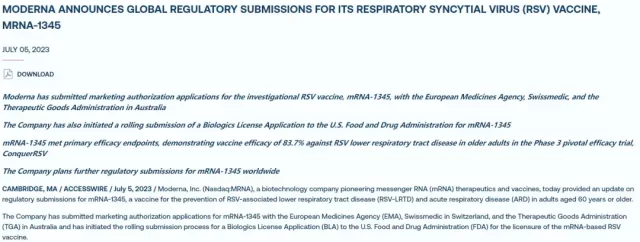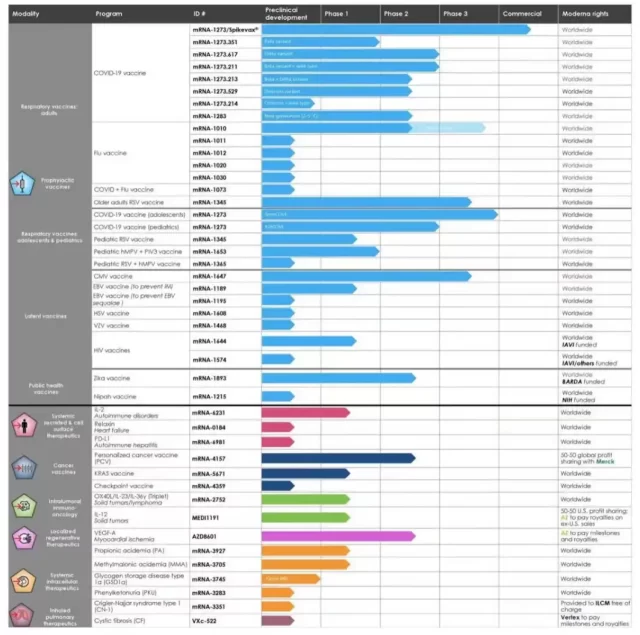The Lancet: PD-L1 therapy doubles the two-year survival rate of patients with refractory advanced lung cancer
- Normal Liver Cells Found to Promote Cancer Metastasis to the Liver
- Nearly 80% Complete Remission: Breakthrough in ADC Anti-Tumor Treatment
- Vaccination Against Common Diseases May Prevent Dementia!
- New Alzheimer’s Disease (AD) Diagnosis and Staging Criteria
- Breakthrough in Alzheimer’s Disease: New Nasal Spray Halts Cognitive Decline by Targeting Toxic Protein
- Can the Tap Water at the Paris Olympics be Drunk Directly?
The Lancet: PD-L1 therapy doubles the two-year survival rate of patients with refractory advanced lung cancer
- Should China be held legally responsible for the US’s $18 trillion COVID losses?
- CT Radiation Exposure Linked to Blood Cancer in Children and Adolescents
- FDA has mandated a top-level black box warning for all marketed CAR-T therapies
- Can people with high blood pressure eat peanuts?
- What is the difference between dopamine and dobutamine?
- How long can the patient live after heart stent surgery?
The Lancet: PD-L1 therapy doubles the two-year survival rate of patients with refractory advanced lung cancer.
Lung cancer is currently the second most common cancer with the second highest incidence and second highest death rate in the world.
According to the 2020 global cancer burden data released by the International Agency for Research on Cancer (IARC) of the World Health Organization, there will be 2.2 million new lung cancer cases worldwide in 2020 (second only to breast cancer) , and 1.8 million new lung cancer deaths (far more than other cancers) ) .
Non-small cell lung cancer (NSCLC) accounts for about 85% of all lung cancer cases, and its 5-year survival rate is only about 20%.
The results of a phase 3 clinical trial just published in The Lancet have brought good news to many patients with advanced refractory non-small cell lung cancer (NSCLC) .
On July 6, 2023, The Lancet published a study titled: First-line atezolizumab monotherapy versus single-agent chemotherapy in patients with non-small-cell lung cancer ineligible for treatment with a platinum-containing regimen (IPSOS ): a phase 3, global, multicentre, open-label, randomised controlled study clinical research paper.
This global multicenter, open-label, randomized controlled phase 3 clinical trial showed that atezolizumab ( anti-PD-L1 monoclonal antibody, developed by Roche ) was more effective than single-agent chemotherapy (vinorelbine or gemcitabine). ) significantly improved overall survival in patients with advanced non-small cell lung cancer (NSCLC) who were ineligible for platinum-based chemotherapy .

The clinical trial was conducted by researchers from University College London, University College London Hospital, Regensburg University Hospital in Germany, Tata Memorial Hospital in India, Marie Curie National Cancer Institute in Poland, Chest Hospital Affiliated to Shanghai Jiaotong University School of Medicine, Tianjin Medical Researchers from more than 20 institutions including the University Cancer Hospital cooperated to complete the project.
For patients with advanced non-small cell lung cancer (NSCLC) , first-line immunotherapy combined with or without platinum-based doublet chemotherapy has become the standard therapy.
However, patients with more than advanced NSCLC who are in poor health, often elderly, cannot receive platinum-based doublet chemotherapy due to poor tolerability or toxicity issues, which limits their treatment options, often to less effective Single-agent chemotherapy .
At present, most treatment guidelines do not recommend immunotherapy because of the lack of randomized controlled clinical trial results to prove that immunotherapy is safe and well tolerated, and can improve the overall survival rate of poor prognosis population .
This paper reports for the first time a randomized controlled phase 3 clinical trial of first-line treatment with atezolizumab (A tezolizumab, an anti-PD-L1 monoclonal antibody) in advanced NSCLC patients not suitable for platinum-based chemotherapy .
This clinical trial was designed to determine the efficacy, safety and overall survival of first-line immunotherapy with atezolizumab compared with single-agent chemotherapy in patients with advanced NSCLC. Patients were randomized 2:1, 302 patients received atezolizumab , and 151 patients received single-agent chemotherapy.
The results of clinical trials showed that atezolizumab treatment significantly improved the overall survival rate of patients with advanced NSCLC and brought clinically meaningful long-term survival benefits.
Twenty-four.3 percent of patients with advanced NSCLC treated with atezolizumab were alive at two years, compared with 12.4 percent of patients treated with single-agent chemotherapy .
In other words , compared with single-agent chemotherapy, atezolizumab doubled the two-year survival rate of patients with advanced NSCLC.

The lead of the clinical trial, Professor Siow Ming Lee of the Institute of Cancer Research, University College London, said that for more than two decades, clinical trials have failed to provide the elderly NSCLC patients with poor health who are not suitable for standard platinum-based doublet chemotherapy. Significant therapeutic benefit.
However, this randomized controlled clinical trial showed that compared with single-agent chemotherapy, first-line treatment with atezolizumab significantly improved the overall survival rate of these poor prognosis patients, and the two-year survival rate of patients receiving treatment was twice that of single-agent chemotherapy.
Moreover, atezolizumab treatment also resulted in stabilization or improvement of health-related quality of life measures, and no new safety concerns were identified.
Paper link :
https://doi.org/10.1016/S0140-6736(23)00774-2
The Lancet: PD-L1 therapy doubles the two-year survival rate of patients with refractory advanced lung cancer
(source:internet, reference only)
Disclaimer of medicaltrend.org
Important Note: The information provided is for informational purposes only and should not be considered as medical advice.



